Cause and Effect
Cause and effect is a relationship between events or things, where one is the result of the other or others. Understanding cause and effect helps readers comprehend and analyze how actions, events, or conditions lead to certain outcomes.
Identifying Cause and Effect
When studying cause and effect, it's important to be able to identify the cause (the reason something happens) and the effect (the result of the cause). This can be done by looking for specific keywords and phrases in the text, such as "because," "since," "as a result," "therefore," "so," "consequently," and "due to."
Examples of Cause and Effect
Here are some examples of cause and effect relationships:
- Cause: The weather was very hot. Effect: I got sunburnt.
- Cause: I studied hard for the test. Effect: I got an A.
- Cause: The power went out. Effect: The food in the refrigerator spoiled.
Practice Questions
Now let's practice identifying cause and effect with some questions:
- What is the cause and effect in the following sentence: "The streets were wet because it had rained all night."
- Identify the cause and effect in the sentence: "She missed the bus, so she was late for school."
- Find the cause and effect in this sentence: "The dog barked loudly, scaring away the intruder."
Answer Key
Here are the answers to the practice questions:
- Cause: It had rained all night. Effect: The streets were wet.
- Cause: She missed the bus. Effect: She was late for school.
- Cause: The dog barked loudly. Effect: Scaring away the intruder.
[Cause And Effect] Related Worksheets and Study Guides:
.◂English Language Arts Worksheets and Study Guides Fifth Grade. Cause and Effect
Study Guide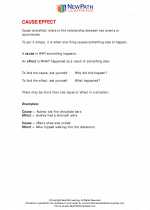 Cause and Effect
Cause and Effect  Activity Lesson
Activity Lesson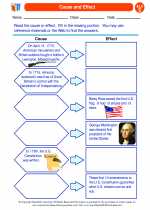 Cause and Effect
Cause and Effect  Activity Lesson
Activity Lesson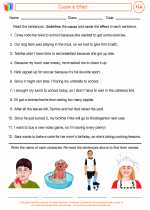 Cause and Effect
Cause and Effect  Worksheet/Answer key
Worksheet/Answer key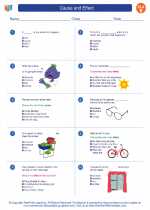 Cause and Effect
Cause and Effect  Worksheet/Answer key
Worksheet/Answer key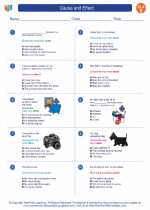 Cause and Effect
Cause and Effect  Worksheet/Answer key
Worksheet/Answer key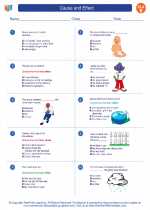 Cause and Effect
Cause and Effect  Worksheet/Answer key
Worksheet/Answer key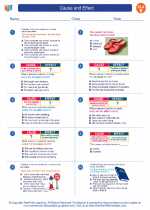 Cause and Effect
Cause and Effect  Worksheet/Answer key
Worksheet/Answer key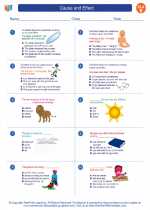 Cause and Effect
Cause and Effect  Worksheet/Answer key
Worksheet/Answer key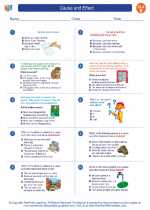 Cause and Effect
Cause and Effect  Worksheet/Answer key
Worksheet/Answer key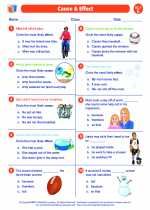 Cause and Effect
Cause and Effect 

 Activity Lesson
Activity Lesson
 Activity Lesson
Activity Lesson
 Worksheet/Answer key
Worksheet/Answer key
 Worksheet/Answer key
Worksheet/Answer key
 Worksheet/Answer key
Worksheet/Answer key
 Worksheet/Answer key
Worksheet/Answer key
 Worksheet/Answer key
Worksheet/Answer key
 Worksheet/Answer key
Worksheet/Answer key
 Worksheet/Answer key
Worksheet/Answer key

The resources above cover the following skills:
Reading
The student will read and demonstrate comprehension of fictional texts, literary nonfiction, and poetry.
Identify cause and effect relationships.
The student will read and demonstrate comprehension of nonfiction texts.
Identify cause and effect relationships.